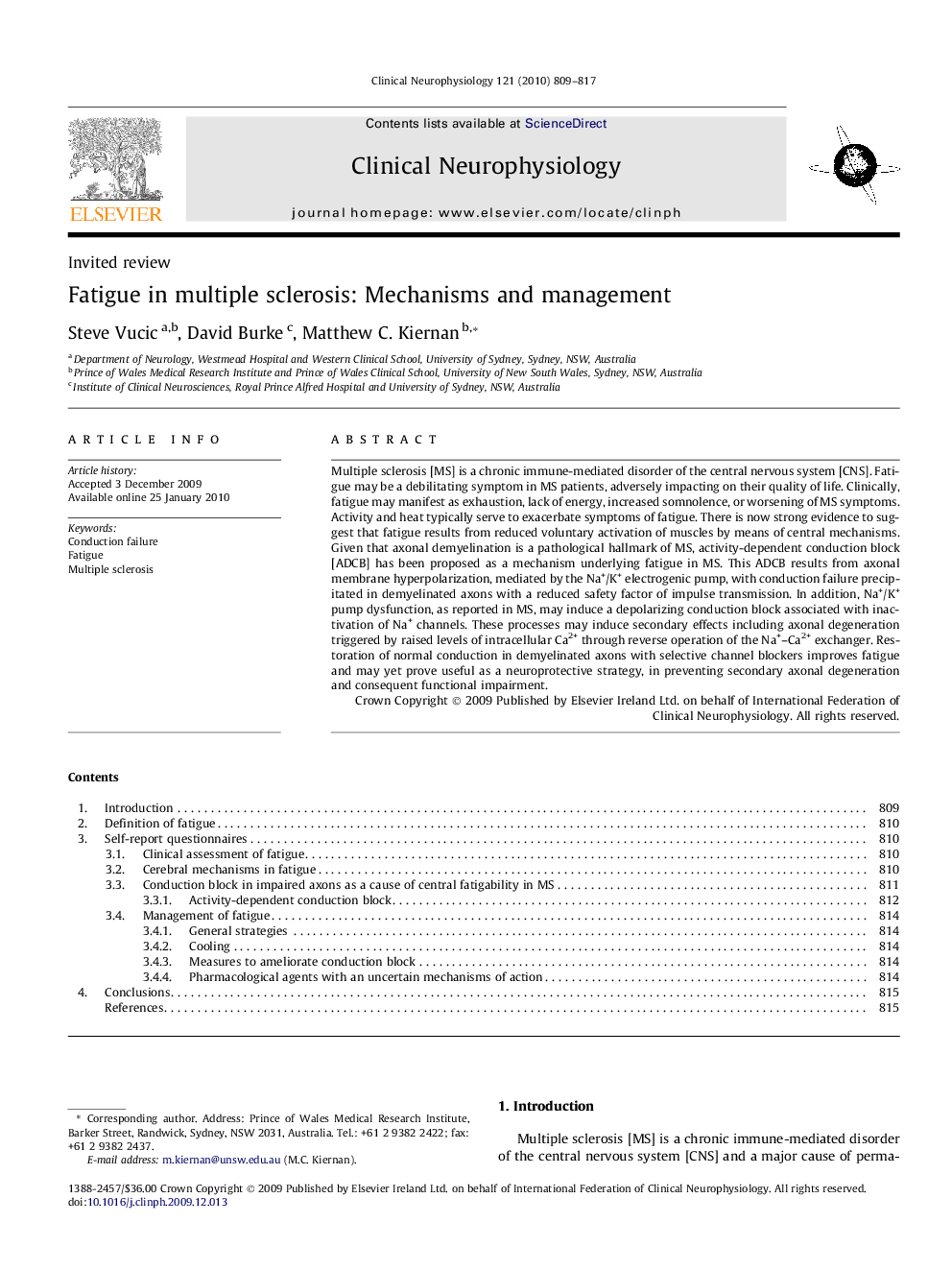| کد مقاله | کد نشریه | سال انتشار | مقاله انگلیسی | نسخه تمام متن |
|---|---|---|---|---|
| 3045673 | 1185027 | 2010 | 9 صفحه PDF | دانلود رایگان |

Multiple sclerosis [MS] is a chronic immune-mediated disorder of the central nervous system [CNS]. Fatigue may be a debilitating symptom in MS patients, adversely impacting on their quality of life. Clinically, fatigue may manifest as exhaustion, lack of energy, increased somnolence, or worsening of MS symptoms. Activity and heat typically serve to exacerbate symptoms of fatigue. There is now strong evidence to suggest that fatigue results from reduced voluntary activation of muscles by means of central mechanisms. Given that axonal demyelination is a pathological hallmark of MS, activity-dependent conduction block [ADCB] has been proposed as a mechanism underlying fatigue in MS. This ADCB results from axonal membrane hyperpolarization, mediated by the Na+/K+ electrogenic pump, with conduction failure precipitated in demyelinated axons with a reduced safety factor of impulse transmission. In addition, Na+/K+ pump dysfunction, as reported in MS, may induce a depolarizing conduction block associated with inactivation of Na+ channels. These processes may induce secondary effects including axonal degeneration triggered by raised levels of intracellular Ca2+ through reverse operation of the Na+–Ca2+ exchanger. Restoration of normal conduction in demyelinated axons with selective channel blockers improves fatigue and may yet prove useful as a neuroprotective strategy, in preventing secondary axonal degeneration and consequent functional impairment.
Journal: Clinical Neurophysiology - Volume 121, Issue 6, June 2010, Pages 809–817